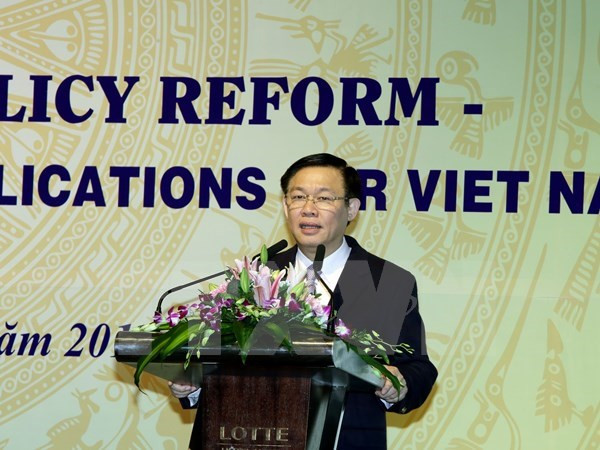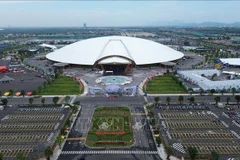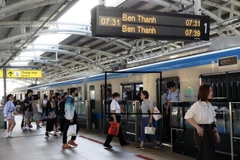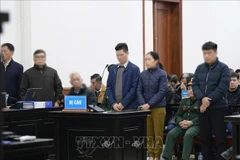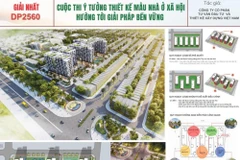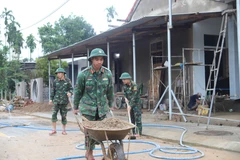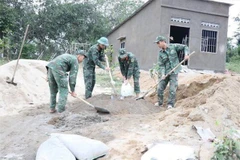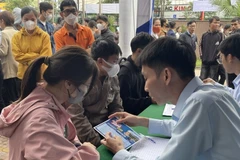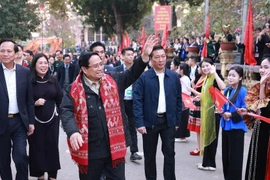Hanoi(VNA) – Deputy Prime Minister Vuong Dinh Hue emphasized that salary reform isan urgent demand at a conference in Hanoi on December 13 to discuss experienceof the world and Vietnam in renovating salary policies.
The Deputy PM saidthat salary reform is closely linked with administrative reform and reshufflingthe political apparatus and public service agencies.
However, he pointed tothe need to seek proper payment policies that suit the specific conditions ofVietnam, which requires careful calculation.
Dr. Jinho Jeong fromthe Korea Labour Institute held that it is necessary to consider thecomplication of tasks and level of responsibility along with price and livingcosts in deciding salary levels in public sector, to ensure salary can cover minimumstandards of living.
It is crucial toconsider the equality of wage between State-owned and private sectors, he said.
Meanwhile, Director ofthe International Labour Organisation’s Office in Vietnam Changhee Lee saidthat the salary system in Vietnam’s public sector is confusing, such as aperson in a higher position may have lower salary than some subordinates.
He asserted that theapplication of wage coefficient makes it difficult for the adjustments of salaryin a regular and orderly manner in public sector. At the same time, there aretoo many types of supplementary allowance, he added.
Changhee Leerecommended that along with change in the salary payment policy, it is necessaryto keep supplementary allowance at under 50 percent of the total salarypackage.
Economist Pham Chi Lannoted that regular spending accounts for nearly 70 percent of State budgetspending, of which 47 percent is spent on salary payment.
Lan pointed out anumber of challenges facing salary reform, including the mindset about the roleof the State and the relations between the State, the market and society.
Irrational andoverlapping allocation of functions among State agencies, a lack of transparency,poor accountability along with red tape and corruption are also among barriers tosalary policy reform, stressed Lan.
She added that thecurrent system of recruitment, salary payment, promotion and dismissing ofpublic servants does not create necessary pressure and motivation for salaryreform.
Concluding thediscussions, Deputy PM Hue shared the specialists’ opinion that publicservants’ salary must ensure minimum standards of living, and is balanced with thebusiness sector and the market.
He also agreed on theneed to switch from the use of wage coefficient to calculate salary to specificfigures, and to reduce the proportion of supplementary allowance in salarypackage.
In the private sector,he stressed the need for maintaining minimum wage to make sure no worker ispaid under the minimum amount, thus protecting vulnerable groups.-VNA
